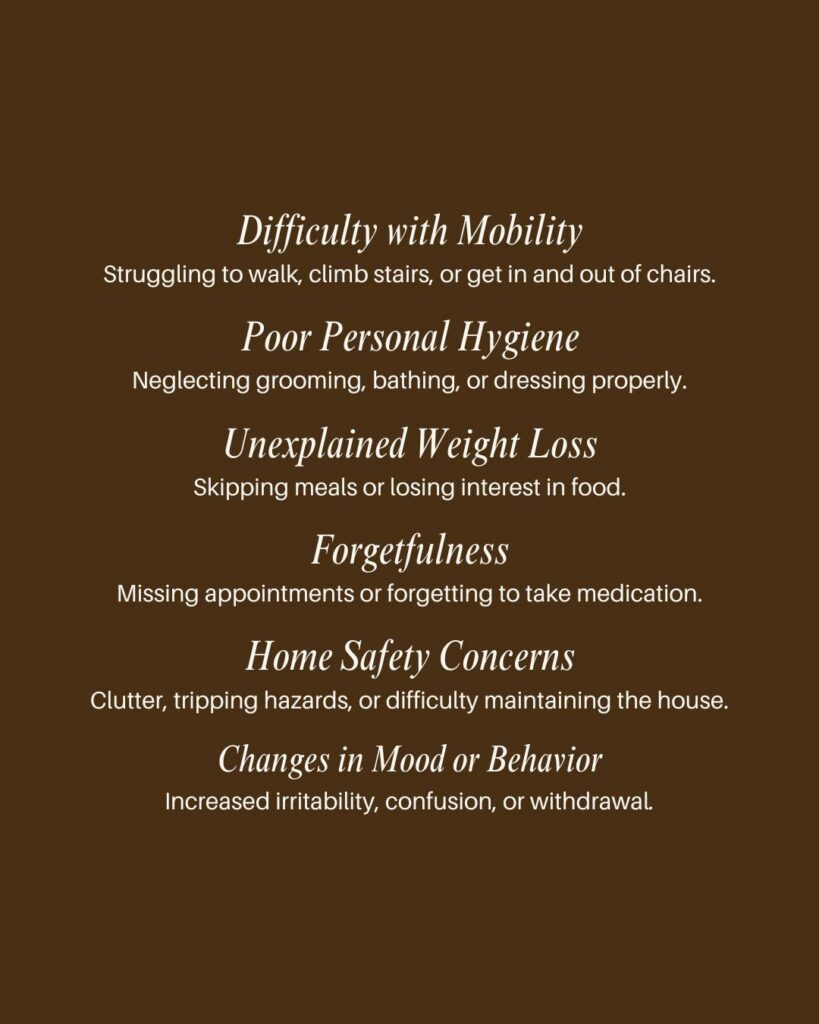As our loved ones age, it’s important to stay alert to signs that they may need help with daily tasks. From difficulty moving around to neglecting personal hygiene, these changes can impact their safety and quality of life.
If you’ve noticed any of these signs, like struggling with mobility, forgetting to take medication, or losing interest in food, it might be time to offer extra support. Having a conversation and exploring caregiving options can make all the difference.
Remember, being proactive can help keep your loved one safe, healthy, and independent for as long as possible. For more tips and resources, follow us for helpful advice on navigating caregiving.
Here Is A List of Things To Look For
Difficulty with Mobility
Struggling to walk, climb stairs, or get in and out of chairs.
Poor Personal Hygiene
Neglecting grooming, bathing, or dressing properly.
Unexplained Weight Loss
Skipping meals or losing interest in food.
Forgetfulness
Missing appointments or forgetting to take medication.
Home Safety Concerns
Clutter, tripping hazards, or difficulty maintaining the house.
Changes in Mood or Behavior
Increased irritability, confusion, or withdrawal.
If you’ve noticed any of these signs, it might be time to offer extra support. Start by having a conversation with your loved one and exploring available caregiving resources.


